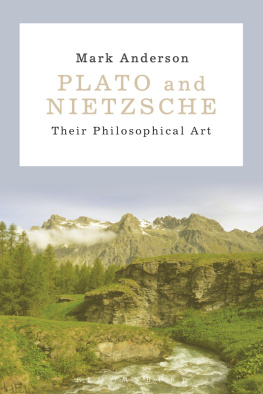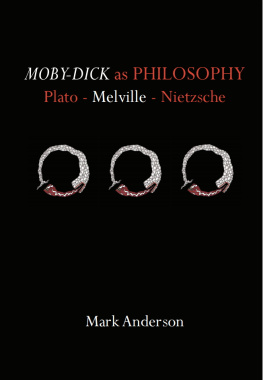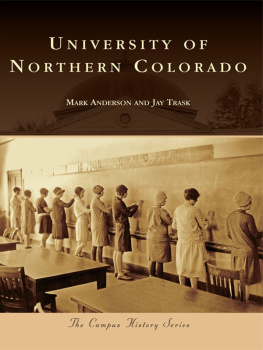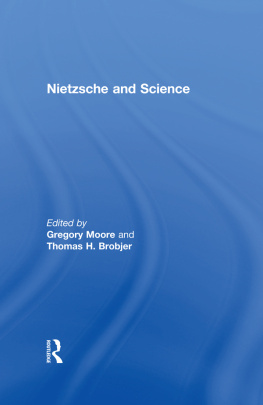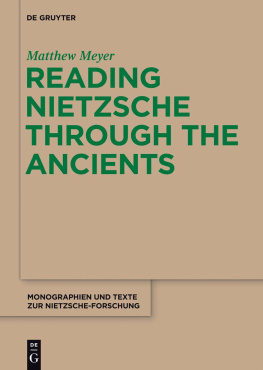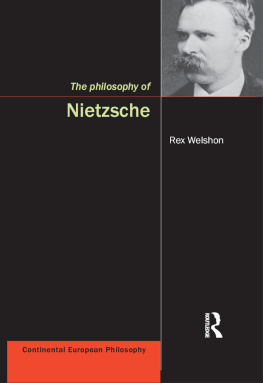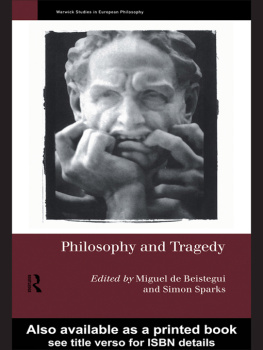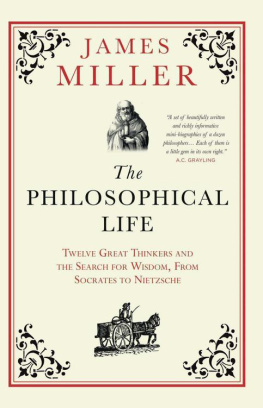Plato and Nietzsche
Also available from Bloomsbury
Heidegger and Nietzsche, Louis P. Blond
Nietzsche and Political Thought , edited by Keith Ansell-Pearson
Nietzsche as a Scholar of Antiquity, edited by Anthony K. Jensen and Helmut Heit
The Continuum Companion to Plato , edited by Gerald A. Press
Plato and Nietzsche
Their Philosophical Art
Mark Anderson
Contents
Think of this book as a scholarly work not restricted to scholars. I have outfitted the text here and there with traditional academic impedimenta, textual references and the occasional quotation of a Greek word or phrase. But I do this only to illuminate particular points, and only those points that the thoughtful general reader will appreciate along with the scholar. Additional details and arguments are in the endnotes.
As for the books content, it is an exploration of those of Platos and Nietzsches ideas that can be joined in dialogue or debate. These include many of their most representative ideas, so one result of my study is a general survey of their work. And as the particulars of the relationship between these two thinkers provide material for reflection on the nature of philosophy and wisdom, I explore these matters too, and I conclude that in exceptional cases this apparent duality might be a unity, especially when a third element, artistry, is present.
Finally, with this book I tell a story. Some parts of my narrative are traditional and will therefore be familiar and uncontroversial, others are less conventional. In any case, it is on the whole my own version of Plato and Nietzsche, and of wisdom and the love of wisdom. As particularly my own, the story I tell is somewhat idiosyncratic, but I trust it will engage and inform a few curious readers.
My thanks to Sally Holt for her patient assistance and enthusiastic support, also to Francesca Muccini, Theron Spiegl, Ronnie Littlejohn, Andrew Davis, Noel Boyle, Mike Awalt, Ginger Osborn, Anthony Kaldellis, Paul Loeb, Patrick Lee Miller, Paul Bishop, Greg Whitlock, Cameron Smith, Mason Marshall, Bronwen Wickkiser, Scott Aikin, Trey George, Charles Ives, Scott Hawley, Nathaniel Greeson, Mark Migotti, Paige Carter, and Liza Thompson.
Translations
All translations from the Greek are my own. Editions are listed in the bibliography under the authors name.
The majority of Nietzsche translations are borrowed from published works, which are listed in the bibliography under Nietzsches name. Selections from Nietzsches early lectures and notes on Plato ( KGW II.4) are by Andrew Davis. A few unattributed quotations from Nietzsches notebooks and letters are my own.
Abbreviations
Platos works:
Ap . Apology
Cra . Cratylus
Euthphr . Euthyphro
Grg . Gorgias
Ion Ion
Lg . Laws
Men . Meno
Phd . Phaedo
Phdr . Phaedrus
Phlb . Philebus
R . Republic
Sph . Sophist
Sts . Statesman
Smp . Symposium
Tht . Theaetetus
Ti . Timaeus
Nietzsches works:
KGW Nietzsche Werke: Kritische Gesamtausgabe
KSA Smtliche Werke: Kritische Studienausgabe
KGB Briefwechsel: Kritische Gesamtausgabe
A The Antichrist
BGE Beyond Good and Evil
BT The Birth of Tragedy
EH Ecce Homo
GS The Gay Science
GM On the Genealogy of Morals
HH Human, All Too Human
HL On the Uses and Disadvantages of History for Life
P The Philosopher
PHT Philosophy in Hard Times
PPP The Pre-Platonic Philosophers
PTG Philosophy in the Tragic Age of the Greeks
SE Schopenhauer as Educator
TI Twilight of the Idols
TL On Truth and Lies in a Nonmoral Sense
UM Untimely Meditations
WP The Will to Power
WS The Wanderer and His Shadow
Z Thus Spoke Zarathustra
Other works:
DK Diels and Kranz:
DL Diogenes Laertius:
WWR Schopenhauer: World as Will and Representation
Citations
I refer to passages in Platos works by title abbreviation and line number. Regarding the transliterated Greek as it appears in my text, sometimes when making a general point by way of the mention of a word, or when I want the reader to see the word in its primary form, I put the word in the nominative case regardless of its form in the cited location.
I refer to passages in Nietzsches works by title abbreviation, chapter or part title when necessary, and aphorism or section number. I refer to PPP and PTG by page number, and to TL by page number of Breazeale 1990.
There is a tradition going back to the ancients of evaluating a philosopher according to the way he lived his life and how he met and managed his death. Plato died naturally while revising a work that he must have known would be his last, the final summit in a long life of intellectual mountaineering. Nietzsche died most unnaturally, his mind passing away a full decade before his body finally expired, during a period that should have been the prime, not the end, of his career as a thinker and author. As for their lives, Plato at birth (c. 428 BCE) was given the name Aristocles, the Plato being a nickname derived from a word meaning broad and applied to him, according to one ancient account, from his robust physique; he was reputed to have been a wrestler. He was born into a noble family, and many of his relatives were active in Athenian political lifeon his mothers side he descended from the same family as the sage, poet, and lawmaker Solon, and he was related as well to Critias and Charmides, two notorious anti-democrats active especially in the aftermath of the Peloponnesian War. As a young man he composed poems and aspired to be a tragedian, but when he met Socrates everything changed: he burned his tragedies and dedicated his life to the love of wisdom. In the turmoil following Socrates trial and execution (in 399 BCE), Plato fled Athens for a time but eventually returned and began to write the dialogues for which eventually he was designated divine. Sometime later, and perhaps following the first of three trips to Italy and Sicily, where he made the acquaintance of everyone from Pythagorean philosophers to Dionysius I, tyrant of Syracuse, he commenced teaching in a public park approximately a mile beyond Athens city walls and near to a property he purchased and on which he established a residence. The park was sacred to an Athenian hero named Hekadmos, and it is from this name that we have the word Academy. In later years at the request of a friend Plato sailed again to Sicily, this time in order to educate young Dionysius II, who from his father had inherited rule of Syracuse. The idea was to produce a philosopher-king, but this was not to be. Dionysius was mercurial and peevish; he made neither ethical nor intellectual progress and eventually sent Plato brusquely away. Later still, after a final fruitless effort in Sicily, Plato disengaged from political affairs and settled exclusively into a life of the mind. He lived into, or close to, his eightieth year, and to judge from his late works, including his last work the
Nietzsches life was very different. Born in 1844 to a Lutheran minister who died young from softening of the brain, Nietzsche suffered throughout his life from a variety of debilitating ailments, and he lived in fear of succumbing to a fate like his fathers. As a child he was pious, quiet, small and seriousand also remarkably bright. In 1858 he earned a scholarship to attend a prestigious boarding school called Pforta, where for the next six years he received an excellent classical education. From Pforta he went to university with the intention of studying theology, but soon he abandoned , Nietzsche had discovered in a bookstore by chance only a few years earlier. It was his first serious exposure to contemporary philosophy, and he was captivated.

